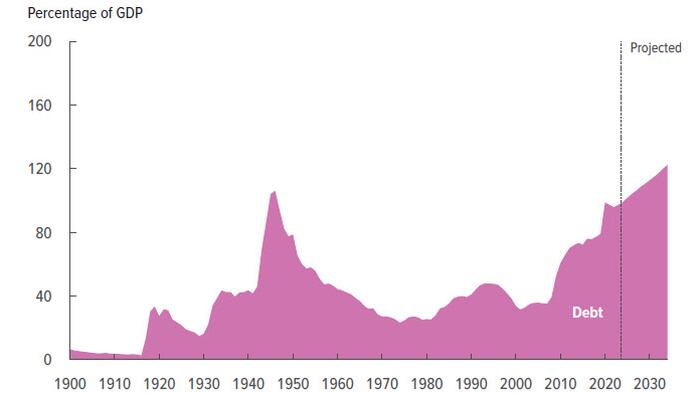In a June report, the European Central Bank (ECB) identified urgent fiscal challenges faced by Eurozone countries, primarily driven by ageing populations, increased defense spending, and the pressing need to address climate change. The ECB recommended that member nations enact a fiscal tightening of 3% of GDP to mitigate these burdens. However, this recommendation carries severe risks; analysts warn that such measures could trigger a deep recession or even plunge the economy into a depression. To further complicate matters, the ECB suggested that an additional tightening of 2% annually would be necessary to bring the debt-to-GDP ratio back in line with the EU’s target of 60% by the year 2070. The stark reality is that even the authors of this report recognized the potentially devastating impacts of their recommendations, emphasizing urgent action to avoid exacerbating the financial situation.
The report issued by the ECB portrayed a grim outlook, suggesting that there was little room for complacency in addressing these fiscal concerns. The longer Eurozone nations delayed critical adjustments, the more painful and costly those adjustments would become. With a proposed fiscal tightening equivalent to approximately €720 billion per year, the challenges to implementing such drastic measures raise significant questions about the feasibility and sustainability of these policies. There is a consensus among economists and policymakers that the suggested fiscal restraint could severely hinder economic growth and exacerbate socio-economic disparities across the region.
In September, former ECB President Mario Draghi took a different stance, issuing a competitiveness report that highlighted the urgent need for a comprehensive fiscal strategy for the European Union. He cautioned that the EU is at a critical juncture where failure to act could compromise essential elements of society, including welfare, environmental sustainability, and fundamental freedoms. Draghi’s report made a call for a 4.7% annual fiscal expansion to counter the challenges facing the EU and to reinvigorate economic growth. This stark contrast to the ECB’s earlier recommendations underscores the complexities of the current economic landscape, where the balance between fiscal prudence and necessary investment becomes a contentious issue.
The conflicting recommendations from the ECB and Draghi reveal a broader debate within the EU on the appropriate fiscal response to contemporary challenges. On one hand, there is the acute need for fiscal tightening to manage debt levels, as highlighted by the ECB’s report. Conversely, Draghi’s call for expansion emphasizes the crucial role that government investment can play in fostering economic resilience, improving competitiveness, and ultimately enhancing the quality of life for EU citizens. This divergence in thinking reflects the difficult trade-offs that policymakers must navigate as they contend with structural changes in the global economy, technological advancements, and demographic shifts.
As these discussions unfold, the impacts of fiscal policies on the Eurozone’s economy and societal stability are of paramount concern. Implementing strict fiscal controls, as suggested by the ECB, might temporarily lower debt levels, but such austerity measures also risk stifling innovation and undermining public trust in government institutions. Conversely, pursuing aggressive fiscal expansion could invigorate growth and provide necessary investments in critical sectors, but it raises concerns over long-term sustainability and the potential for inflation to erode purchasing power. Thus, the critical question remains: how can Eurozone nations effectively balance fiscal responsibility with the need for growth in a rapidly changing economic environment?
In conclusion, the fiscal recommendations put forth by the ECB and Mario Draghi illustrate a fundamental tension within the Eurozone regarding economic strategy. As nations grapple with the dual imperatives of addressing immediate fiscal challenges and fostering long-term growth, they must carefully consider the ramifications of their policies. The future of the Eurozone may depend on its ability to adopt a flexible approach that combines prudent fiscal management with innovative measures to stimulate growth and protect the welfare of its citizens. As the challenges of climate change, an ageing population, and global geopolitical instability mount, a cohesive and responsive fiscal policy will be essential in ensuring a prosperous future for the EU.

